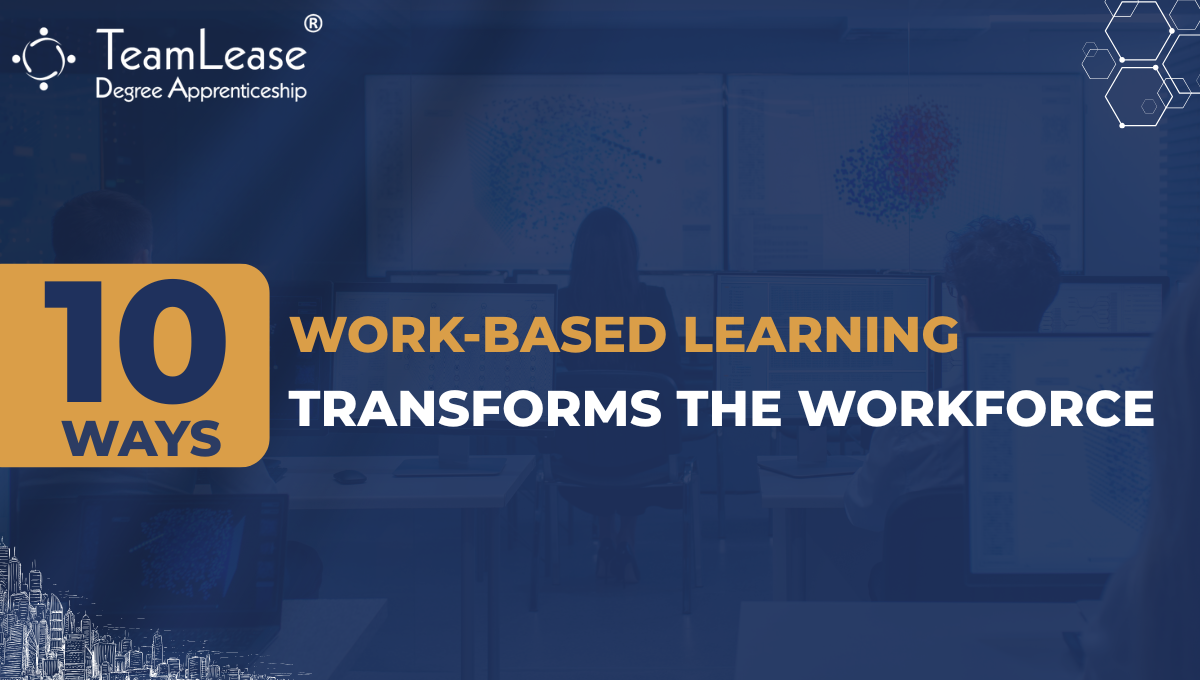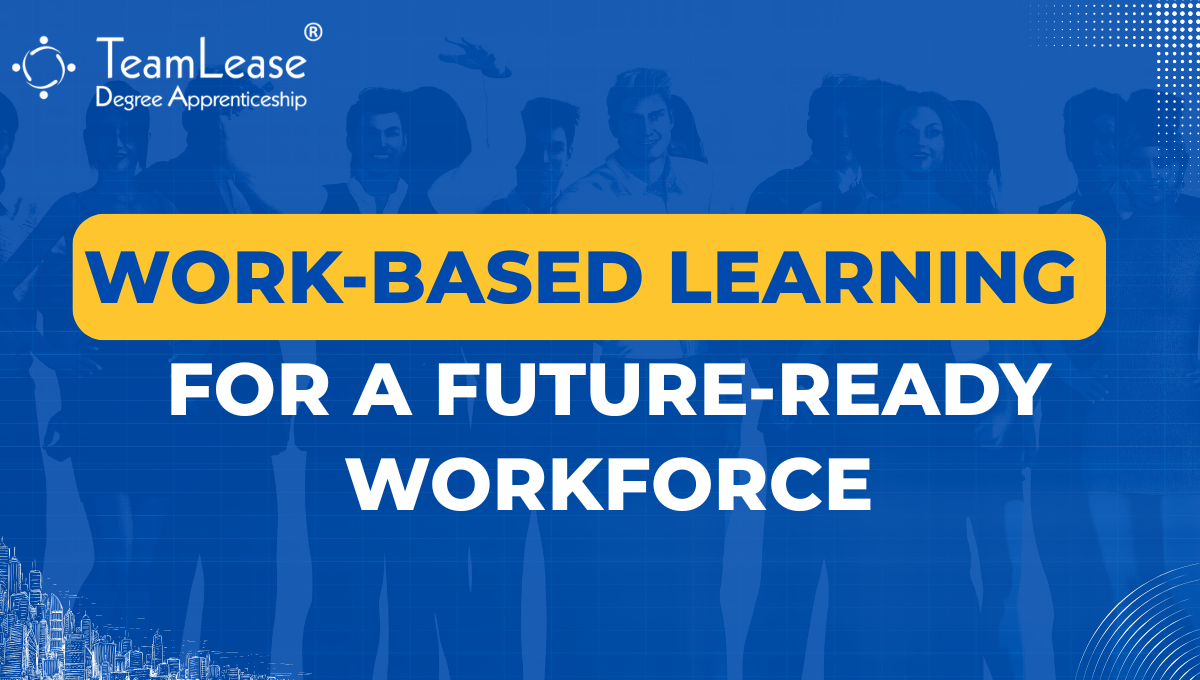The year 2020 is going to be remembered as a distinct year because of the paradigm shift it has brought to the world. Every element of the ecosystem has seen fundamental changes, especially business operations and jobs which have changed drastically. While on the one hand, many industries witnessed a slowdown resulting in a drop in employment opportunities, many sectors, on the other hand, in the essential goods and services categories, like Healthcare, Pharmaceutical, E-commerce, EdTech, FMCG, etc continued to grow and many opportunities were also created in these industries.
While on the one side, industries re-invented their business or market, the skills which employers looked out for also underwent a shift. The pandemic made a lot of companies realize the need to have professionals with advanced and specific skill sets. Organisations prefer and will continue to opt for candidates who are agile and creative. The Covid-19 pandemic has defined a new era which has accelerated the adoption of digitization as organisations across the globe reimagined the business models and working patterns to maintain continuity. The future workforce will be also expected to work from home, will require to be digitally savvy but will have to work hard on social skills to encourage team work and group learning. Again, to reiterate, this year pushed technology adoption by 4X and this is going to largely shape the future of skill requirements as well.
Keeping in mind what went by this year, and the fact that 2021 still needs to deal with a lot of aftermath of the ongoing crisis, here are some sector agnostic skill sets which companies will have an eye for in the next year:
· Digital Skills are the most sought-after new age employable skills. With 30% of the workforce expected to work from home even in the future, employers will require their candidates to be digital savvy and socially fit. Companies will prefer candidates who are skilled in web technologies, cyber security and social media. Retail and education sectors have seen an exponential adoption of digitization, while others are upgrading an aggressive digitization strategy to cope up with the current economic situation and prepare for future growth.
· Technological Competencies: Technology has been a great influence on the world of work. We have evolved from basic mechanization to more complex technologies today. While we may have heard a lot about automation and robotics in the past, the year saw the much-needed push for adoption of these technologies. The global supply chain got impacted by the C-19 pandemic, especially due to the transborder restrictions. This had further pushed companies to go local. Many companies strengthened their domestic capabilities using these advanced technologies. Organisations have realized that these technologies ensure high productivity and help maintain cost efficiency. Manufacturing sector, which was gearing up for the fourth industrial revolution, has accelerated the adoption of technology. These new reformed roles have called out for the need to have niche domain knowledge of technical skills like robotics, mechatronics, IOT, data architect, networking, and software coders for designing the platforms.
· High Order Thinking Skills (HOTS): In 2021, organisations will be inclined towards hiring people with HOTS which focused on cognitive aspect of capabilities, including creative thinking and decision-making ability. Though this skill is critical for complex problem solving, but in a situation like the current pandemic, this skill becomes even more crucial for business continuity. This skill is essential not just at a leadership level to take strategic initiatives, but even at a supervisory level or front-end level to handle a complex situation. High order thinking skills are creative cognisance, issue resolution, agile decision making, crisis mitigation, strategic thinking etc. These skills will be very important in the future as they will enable organisations to adapt to change faster.
· Analytical Skills are ever green skills appreciated by the employers which influences the future planning and decision making. While this may involve a lot of data crunching but to put it in right perspective is where analytical skills play a crucial role. These skills are essentials in all functions from financial planning, product development, customer satisfaction, etc.
· Social & Communication Skills: Social Skills are as critical as technical skills to get along with the colleagues, align with the common goals of the organisation and create a congenial work culture. The behavioural skills that employers want candidates to have are clarity in thoughts, aligning the thoughts to business objectives, free flow of communication and transparency. Organisations also look for good social skills as they encourage group and peer-to-peer learning. Employers prefer people who are amiable and amicable.
· Growth Mindset: One of the main things that employers will want in employees is continued learning approach. While this is a basic skill set, however it is a crucial one for 2021, especially to deal with the after effect of the ongoing crisis. They would want employees to be open to constructive criticism and have a strong growth mindset. Growth mindset reflects learnability. The ability and willingness to adopt and adapt are essential to individual’s growth and for the business. Growth mindset reflects a person’s risk-taking ability, innovation, creativity and willingness to learn. Closed mindset and stubbornness are detrimental to one’s mental health which can be a stumbling block for any organisation.
Over the last one year, employers have been revisiting their people strategy to ensure productivity, social engagement and cost rationalization. They have also been investing in enabling a supportive learning culture across the board. This will continue to be the focus area even next year. While above, we have looked at some of the key skills which will be in demand, it is also important to note that just merely having these skills will not be important enough. It is as important for an individual to keep upgrading skills in order to remain relevant to the ever-changing world of work. It is equally important for an organisation to create a learning culture and keep investing in talent creation and development. Revival of economy post C-19 will require organisations to have a skill-based approach while hiring their workforce. Jobs will be strongly influenced by technology than ever before. In fact, employers would want their workforce to have some on-ground experience to be able to deal with the requirements better. In order to put together a skilled workforce and maintain a productive people supply chain, organisations can also look at apprenticeships.
Today what is missing in our ecosystem is embedding skill training into the learning curve right at the beginning of the education process. While the recent National Education Policy does address some elements, another need of the hour is for employers to actively partner with academia to augment the skill training process, both cognitive and non-cognitive skills.
"This article originally appeared on ETHRWorld on 27th November 2020"




No comments yet
Your Comment